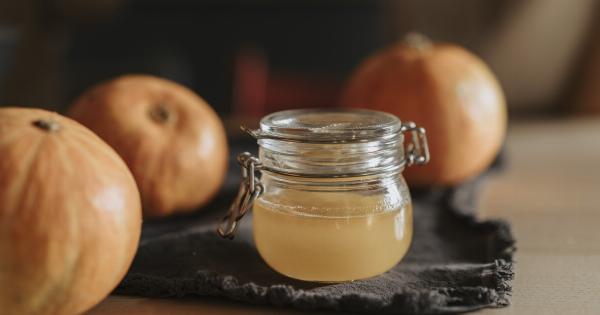Apple cider vinegar (ACV) is a natural product that has gained popularity in recent years due to its numerous health and beauty benefits. One of its lesser-known yet extremely effective uses is as a hair softener.
If you are tired of dealing with frizzy, dry, or unruly hair, incorporating apple cider vinegar into your hair care routine can help you achieve soft, silky locks. This article will guide you through the benefits of using ACV for hair softening, different application methods, and important precautions to take.
The Benefits of Apple Cider Vinegar for Hair Softening
1. pH Balancing: Apple cider vinegar has a pH level close to that of our hair, making it an excellent natural conditioner. Using ACV helps restore the pH balance of the scalp and hair, making them softer and more manageable.
2. Sealing Cuticles: The acidic nature of apple cider vinegar helps to seal the hair cuticles, preventing moisture loss and making the hair smoother.
3. Natural Detangler: ACV has natural detangling properties, reducing knots and making it easier to comb or brush your hair, resulting in soft and tangle-free locks.
4. Moisture Retention: By balancing the hair’s pH and sealing the cuticles, apple cider vinegar helps the hair retain moisture, which leads to softer and healthier-looking hair.
5. Scalp Health: ACV has antifungal and antibacterial properties that can help maintain a healthy scalp, preventing conditions like dandruff or itchiness that can contribute to rough hair texture.
Application Methods
1. Apple Cider Vinegar Rinse:.
To create a simple ACV rinse, mix one part apple cider vinegar with two parts water. After shampooing and conditioning your hair, pour the mixture over your hair, focusing on the length and ends.
Gently massage it into your scalp for a few minutes, then rinse thoroughly with lukewarm water. This method can be used once or twice a week.
2. Conditioning Mask:.
For a deeper conditioning treatment, you can make a hair mask by combining apple cider vinegar with natural ingredients like honey, coconut oil, or avocado. Mix equal parts of ACV and the chosen ingredient to form a smooth paste.
Apply the mask to damp hair and leave it on for 20-30 minutes. Rinse thoroughly and follow with your regular shampoo and conditioner.
3. Spray Bottle Method:.
If you prefer a more convenient method, you can dilute apple cider vinegar with water in a spray bottle. After showering and towel-drying your hair, spritz the mixture all over your hair, then gently comb through to distribute it evenly.
Leave it on without rinsing for added softness and shine.
Remember to always perform a patch test before trying any new hair care product or method, including apple cider vinegar, to check for any allergic reactions or sensitivities.
Precautions to Consider
1. Dilution is Key: ACV is highly acidic and can cause irritation or damage if used directly. Always dilute it with water or other ingredients before applying it to your hair.
2. Test on a Small Area: Before using apple cider vinegar on your entire scalp and hair, perform a patch test on a small area to ensure there are no adverse reactions. Wait for 24 hours to see if any redness, itching, or discomfort occurs.
3. Avoid Contact with Eyes: When using apple cider vinegar, make sure it does not come into contact with your eyes, as it can cause irritation.
4. Limit Frequency: While apple cider vinegar can work wonders for your hair, using it too frequently can lead to excessive drying. Limit the use to once or twice a week to maintain the natural balance of your hair and scalp.
5. Non-Color-Treated Hair: ACV might cause color fading or alteration, so it is recommended to use it only on non-color-treated hair, unless approved by a professional hairstylist.
Conclusion
Incorporating apple cider vinegar into your hair care routine can be a game-changer when it comes to achieving soft, silky hair.
The natural properties of ACV help balance pH levels, seal cuticles, retain moisture, and promote scalp health, all of which contribute to softer and more manageable locks. Whether you choose to use an ACV rinse, conditioning mask, or spray bottle method, remember to dilute it properly, perform a patch test, and use it in moderation.
By following these tips, you can enjoy the benefits of this natural hair softener without any unwanted side effects.































